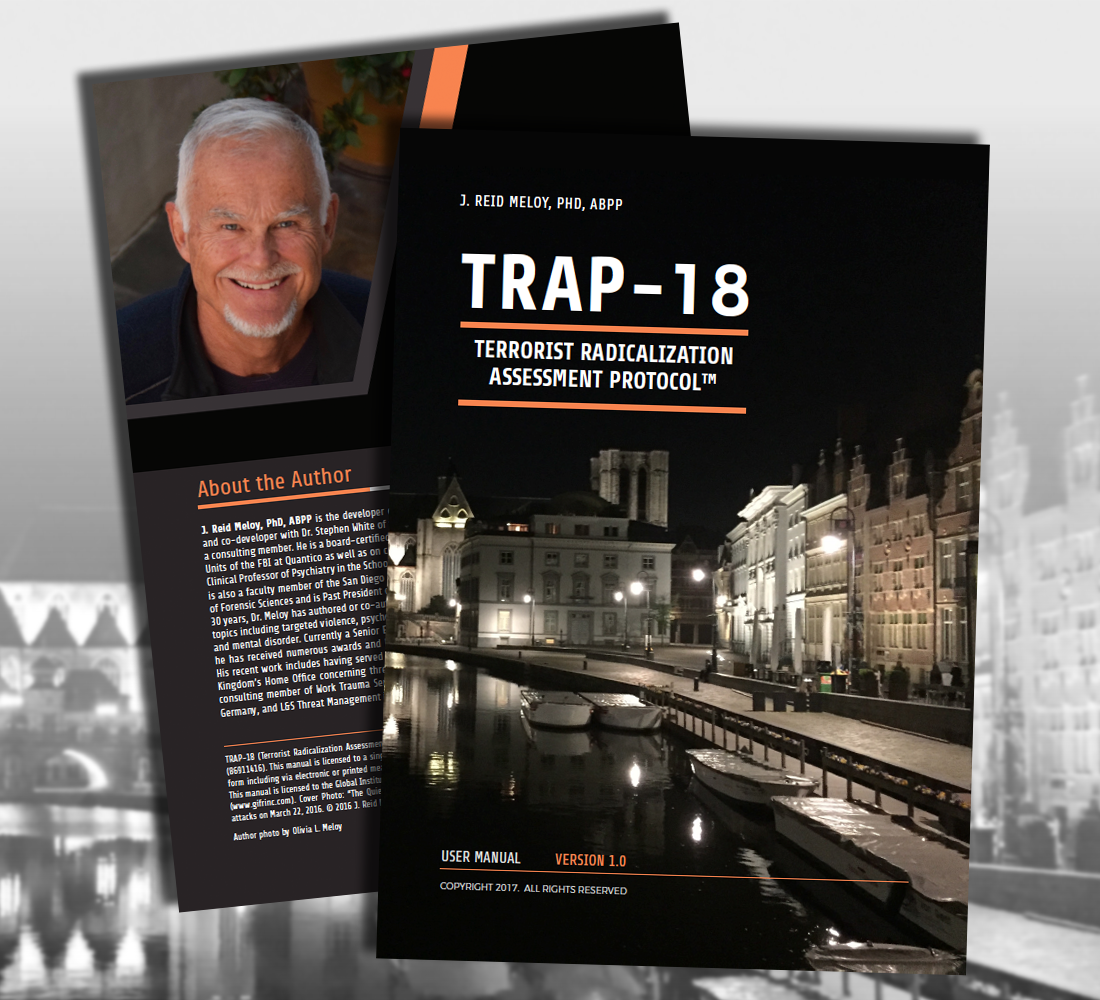 Lone Terrorism refers to violent acts carried out in support of some group, movement, or ideology by a single individual in the absence of direction by an outside group. How do we ensure a comprehensive assessment of risk factors for such tragic acts before they happen? Available exclusively from the Global Institute of Forensic Research, the Terrorist Radicalization Assessment Protocol-18 (TRAP-18) is designed to code for 8 proximal warning behaviors (such as pathway, fixation, identification, and last resort) and 10 longer term distal characteristics (such as personal grievance, ideological framing, failure of sexual pair bonding, and mental disorder). The TRAP-18 provides a means by which mental health, intelligence, law enforcement, and security professionals can organize accumulating operational data on a person of concern, and therefore plan for his or her risk management to reduce the threat of targeted violence. Research concerning the TRAP-18 is ongoing in both North America and Europe, and findings are demonstrating both inter-rater reliability and criterion validity.
Lone Terrorism refers to violent acts carried out in support of some group, movement, or ideology by a single individual in the absence of direction by an outside group. How do we ensure a comprehensive assessment of risk factors for such tragic acts before they happen? Available exclusively from the Global Institute of Forensic Research, the Terrorist Radicalization Assessment Protocol-18 (TRAP-18) is designed to code for 8 proximal warning behaviors (such as pathway, fixation, identification, and last resort) and 10 longer term distal characteristics (such as personal grievance, ideological framing, failure of sexual pair bonding, and mental disorder). The TRAP-18 provides a means by which mental health, intelligence, law enforcement, and security professionals can organize accumulating operational data on a person of concern, and therefore plan for his or her risk management to reduce the threat of targeted violence. Research concerning the TRAP-18 is ongoing in both North America and Europe, and findings are demonstrating both inter-rater reliability and criterion validity.
IMPORTANT: Each TRAP-18 User requires access to a license for the TRAP-18 Manual and code sheets or GEARS. See below for contact to purchase a license to administer the TRAP-18 by hand or online.
Author Biography
J. Reid Meloy, PhD is a board-certified forensic psychologist and clinical professor of psychiatry, Univ. of California, San Diego. Dr. Meloy is also a fellow of the American Academy of Forensic Sciences and past president of the American Academy of Forensic Psychology. He consults on cases in both North America and Europe, and is the author, co-author, or editor of numerous papers and eleven books. Dr. Meloy is a consultant to the Behavioral Analysis Units of the FBI, Quantico.
Cost
Individual-User License
Purchase the TRAP-18 Annual License Fee
For a license to administer the TRAP-18 by hand or online, please contact [email protected]
Multiple-User License
To be considered a group, 10 or more individuals are required to participate.




